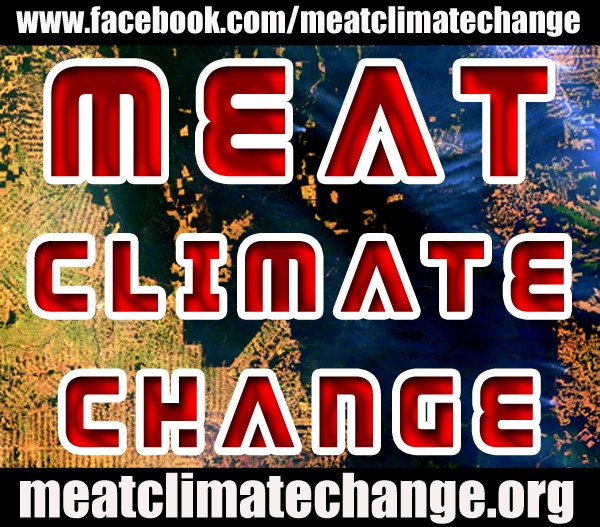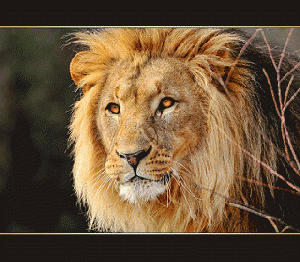Why did the killing of the endangered
Zimbabwean lion Cecil by a professional hunting guide, Theo
Bronkhorst, and an American dentist and trophy hunter, Walter Palmer,
caused such an international outcry? The loss of this precious lion's
life is tragic, yet, over 90% of his Western supporters are carnivores who are
willing participants in the exploitation and killing of billions of
land and marine creatures served daily to satisfy their craving for
flesh, dairy and eggs.
Is there such a huge difference between one endangered animal and billions of food animals? Consider that raising food animals is causing the endangered status of most animals in the first place. Animal agriculture is a leading cause of biodiversity loss, displacement, deforestation, land degradation, desertification, and pollution. Moreover, livestock production is a leading source of potent greenhouse gases like methane and nitrous oxide.
Consumption of animal products is popular and is expected to increase by 50% from 2013 to 2025, facilitated in part by national subsidies and neoliberal trade agreements. Similar to the growing demand for food animals, trophy hunting or legal gaming is increasing in popularity and importance to many national economies in Africa. Trade by poaching or the illegal killing of untamed animals, is booming, as is the trade in exotic animals.
In the last four decades, deer and elk breeding grew to a billion dollar industry, and is currently one the fastest growing business in rural America, but not without its risks. For example, one investigation revealed that breeding deer with big antlers to be shot in fenced hunting preserves contributes to the spread of diseases to livestock and wildlife. The threat of disease has not slowed the popularity of canned hunting, however. Similarly, the recent loss of 8 million piglets to Porcine Epidemic Diarrhea virus, and the culling of 50 million birds due to bird flu, has not slowed pig and egg consumption.
The outpouring of grief over Cecil is an anomaly that is hard to explain. The expansion of the neoliberal economy, livestock production, and trophy hunting, with their attendant increase in greenhouse gas emissions, goes largely unchallenged, especially by mainstream media. The media's coverage of Cecil was instigated by protests from below, at the grassroots, and it stands in stark contrast to their promotion of economic expansion and exploitation of natural resources.
For example, the Washington Post's interview with Charles Koch, and the New York Times's fawning front-page profile of the Koch brothers never mentions the power elite's opposition to clean energy, or how Koch industries causes pollution and damages ecosystems. The liberal media serves as a PR agency for neoliberalism capitalism, so it is no surprise that they allow the power elite to cynically use the poor to justify conservative opposition to the White House's Clean Power Plan.
The power elite's use of media as a trophy wall for everything from justifiable wars to austerity is nothing new, however, and there are vital lessons to be learned. First, the lethal mix of toxic masculinity and neoliberal capitalism is here to stay. Second, this violent mix is not only persistent, but prevalent, and will intensify during periods of expansion and de-growth. Third, the same patriarchal neoliberalism that brought us to massive ecosystem collapse so rapidly, will most likely lead to near-term human extinction faster than any short-term environmental feedbacks.
Ironically, the focus on power elites and trophy hunters conveniently absolves personal responsibility and everyday complicity in animal exploitation. Perhaps, the anomaly of outrage against the killing of Cecil represents a subtle shift in human relations towards animals. More than a single endangered animal, Cecil has become a symbol, a subliminal way for humans largely complicit in the current ecological crisis, to express a hidden awareness and subconscious outrage against the increasing endangerment to our own lives and that of the entire planet.
Dr. Moses Seenarine is a plant-based father and activist, founder of Climate Change 911, and the author of Voices from the Subaltern (2004), and Meat Climate Change (pre-order now).
(Article changed on August 8, 2015 at 18:10)






